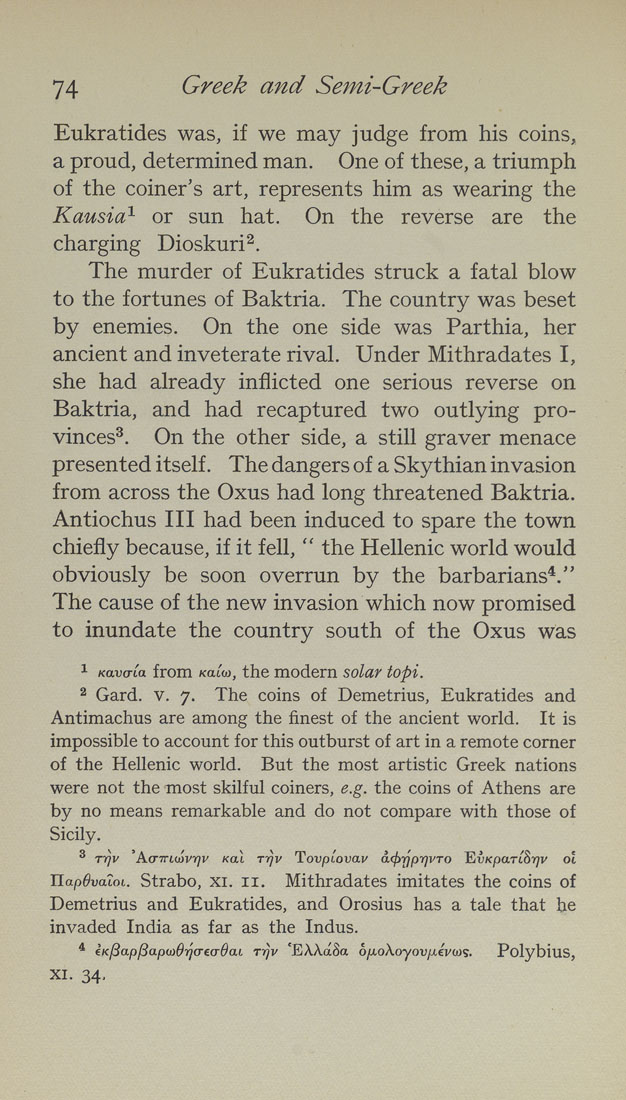74 Greek and Semi-Greek
Eukratides was, if we may judge from his coins,
a proud, determined man. One of these, a triumph
of the coiner's art, represents him as wearing the
Kausia^ or sun hat. On the reverse are the
charging Dioskuri^.
The murder of Eukratides struck a fatal blow
to the fortunes of Baktria. The country was beset
by enemies. On the one side was Parthia, her
ancient and inveterate rival. Under Mithradates I,
she had already inflicted one serious reverse on
Baktria, and had recaptured two outlying pro¬
vinces^. On the other side, a still graver menace
presented itself. The dangers of a Skythian invasion
from across the Oxus had long threatened Baktria.
Antiochus III had been induced to spare the town
chiefly because, if it fell, " the Hellenic world would
obviously be soon overrun by the barbarians*."
The cause of the new invasion which now promised
to inundate the country south of the Oxus was
1 KavdCa from Kaiw, the modern solar topi.
2 Gard. v. 7. The coins of Demetrius, Eukratides and
Antimachus are among the finest of the ancient world. It is
impossible to account for this outburst of art in a remote corner
of the Hellenic world. But the most artistic Greek nations
were not the most skilful coiners, e.g. the coins of Athens are
by no means remarkable and do not compare with those of
Sicily.
^ T77V 'AcTTTttovT^v Ka\ rrjv Tovpiovav dcj)rjpr]VTO EiiKpaTtSr^v ol
HapOvoLOL. Strabo, xi. 11. Mithradates imitates the coins of
Demetrius and Eukratides, and Orosius has a tale that he
invaded India as far as the Indus.
* eK^ap^apwOyjo-eaOaL rrjv 'EXXaSa o/xoAoyov/xeVcos. PolybiuS,
XI. 34.
|








